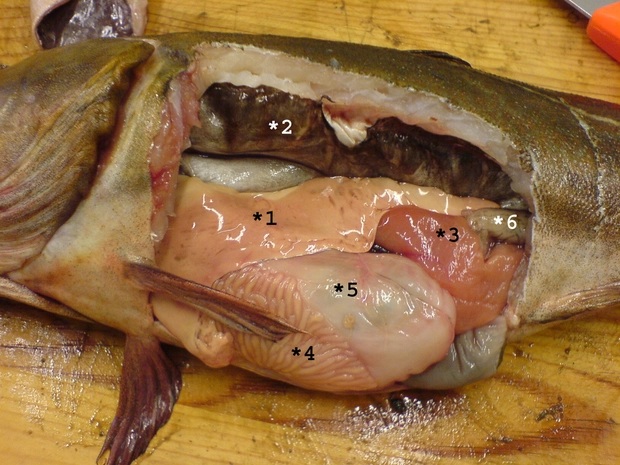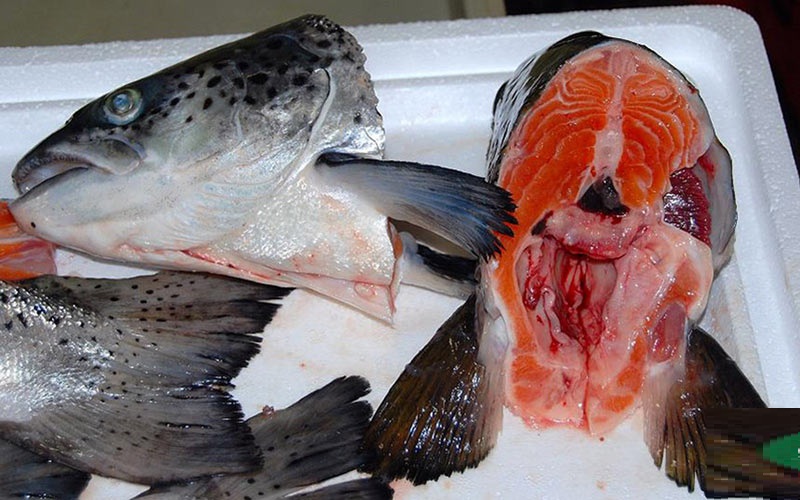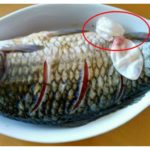Internal Organs of Fish
When we process fish, in addition to removing the intestines and scales, the internal organs in the abdomen should also be discarded instead of keeping them. This is because fish internal organs often contain toxins, and when the fish gallbladder is punctured, the gallbladder fluid inside will spill out. This not only affects the taste of the fish, but the gallbladder fluid can also cause illness when consumed.

Fish Head
Fish live in water from birth, but in recent years, water pollution has become very serious, leading to the presence of heavy metals and hidden toxic substances in the fish’s living environment. These heavy metals and toxic substances accumulate in the fish’s body, generating methylmercury.
These toxic substances, when entering the human body, can have an impact on health. Results from a survey conducted by the Center for Disease Control and Prevention in Nanjing City, China, show that different parts of the same fish will have different levels of heavy metals and toxins. The fish head has the highest levels of mercury, 15 times higher than the fish meat.
According to test reports, the mercury content in fish meat, fish eggs, and fish skin is relatively low, basically below the limit. The fish head is a very difficult part to clean. If you eat the fish head without thoroughly cleaning it, the methylmercury in the fish head will penetrate your body, including your brain, posing a danger to your health.

Fish eyes are thought to be rich in nutrients, but in reality, this is not the case! In fact, fish eyes can contain many bacteria and parasites. Some fish species with red blood or white spots on their eyes are notable signs to pay attention to when buying fish.
The fish brain is located above the eye socket, like a white string. You should not eat the fish brain because it contains heavy metals such as mercury and lead that seep into the fish through the water. Natural fish that live on the bottom are more likely to be contaminated by heavy metals, while fish in higher water levels are less likely to be contaminated.
Slime and Black Film on the Fish Body
After processing the fish’s internal organs, a layer of “slime” will appear on the fish body. This slime contains many bacteria and dirt, and it takes a knife to clean it up completely. In addition, there is also a black film inside the fish that needs to be scraped off with a knife. If not cleaned, the fishy odor of the fish will be difficult to remove and consuming it will not be good for your body.



































